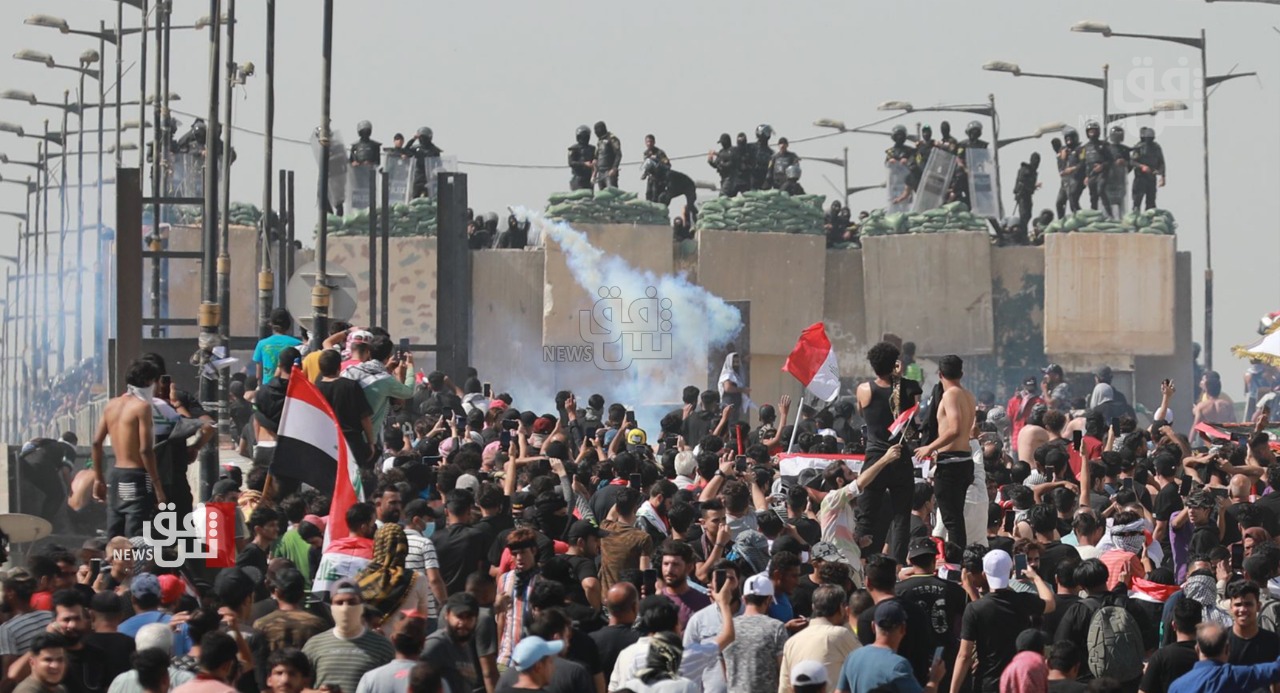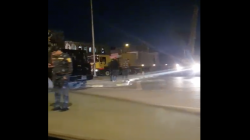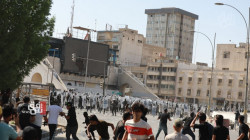Update: Dozens injured in clashes on al-Jumhuriyah bridge

Shafaq News/ Scuffles broke out between protesters and security forces, leaving dozens injured, as thousands gathered in the Iraqi capital on Saturday to celebrate three years after nationwide demonstrations against endemic corruption.
The latest protests in Baghdad come as Iraq has slipped into political paralysis since elections last October that failed to produce a new president, prime minister or government.
Protesters could be heard chanting “the people demand the overthrow of the regime” as thousands gathered in Baghdad’s famous Tahrir Square, the epicenter of the protest movement, on Saturday, an AFP correspondent said.
Many waved portraits of the “martyrs” killed in the wave of protests three years ago.
The demonstrations aim to revive the unprecedented protests of October 2019, which condemned the country’s rampant unemployment and decaying infrastructure.
Those protests raged for months before ending in the shadow of coronavirus restrictions and a crackdown that left at least 600 protesters dead and tens of thousands more injured.
Protesters rallied at Al-Jumhuriya Bridge on Saturday, where they tried to scale a series of barriers erected by security forces to block access to the fortified Green Zone, home to government buildings and diplomatic missions.
Protesters threw the iron barriers into the river, according to an Interior Ministry official, who reported 18 minor injuries suffered by riot police from stones and glass bottles thrown at them.
Police retaliated by throwing smoke grenades at the crowd to disperse them.
"At least 17 protesters suffered from breathing difficulties," a source told Shafaq News Agency, "six security officers sustained varying injuries."
Rival Shiite parties in parliament have been vying for the power and right to elect a new prime minister and government for months.
The impasse pits powerful cleric Miqtada al-Sadr against his rivals, the Iran-backed Coordination Framework, which includes lawmakers from the party of his longtime enemy, ex-Prime Minister Nouri al-Maliki.
Al-Sadr wants snap elections and the dissolution of parliament, but the coordination framework wants a new prime minister to be appointed before any new elections are held.
Tensions escalated on August 29 into clashes between the Sadrists, rival Iran-backed factions and the army, in which more than 30 al-Sadr supporters were killed after their leader said he was abandoning politics.
Parallel to the country’s political impasse, Iraq has also been hit by deep economic and environmental crises.
After decades of war, the oil-rich but conflict-ravaged country is struggling to rebuild.
It has also repeatedly come into the crosshairs of geopolitical tensions from neighboring countries, making it the target of frequent cross-border attacks from Turkey and, more recently, Iran.
As Iran gripped by nationwide protests over the death of a Kurdish woman in the custody of feared morality police, the Islamic Republic on Wednesday launched a spate of strikes against Iranian Kurdish groups based in northern Iraq, accusing them of fomenting unrest at home.
The attacks killed at least 14 people, including a pregnant woman, while at least 58 others were injured, mostly civilians, according to the Iraqi Kurdish counter-terrorism forces.

